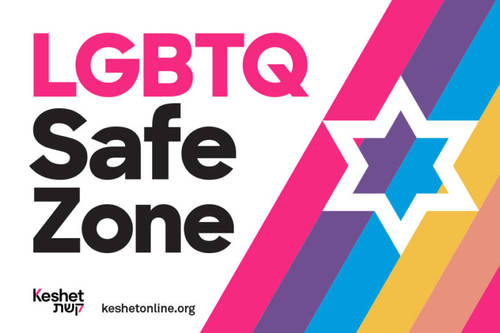D’var Torah from January 19, 2019Parashat B’shallach
01/23/2019 12:08:39 PM
| Author | |
| Date Added |
D’var Torah from January 19, 2019
Parashat B’shallach
This Shabbat brings together multiple occasions. Parashat B’shallach, marking Shabbat Shira, our Shabbat of Song, in which we chant Shirat HaYam, the Song of the Sea, Martin Luther King Day, AND Tu Bishvat. As I was thinking about what I would say this morning, I realized that it might be nearly impossible to connect all three of these days. But actually, all three of these days have things in common.
First of all, let’s talk a little bit about each. Parashat Beshallach, our Torah portion in which we read this morning, recalls our exodus from Egypt, through the red sea. We stand together at as we chant and sing the Song of the Sea (Shirat Hayam), which reenacts the miraculous parting of the waters and the Israelites journey from slavery to freedom. Though the journey following our path across the sea was not ideal, stricken with dehydration, hunger, and exhaustion, the Israelites continued to forge forward.
Now, let’s move to Tu Bishvat. Tu Bishvat falls on this Monday. What is Tu Bishvat? Well let’s first break it down. Tu (tet-vav - 9+6) is the numerical equivalent of 15 and we are in the month of Sh’vat. The 15th of Sh’vat. This day marks the New Year of the Trees. According to the Mishneh, we have 4 new years, and this is one of them. Often on Tu Bishvat we celebrate by planting trees, eating different fruits, and sometimes even having a Tu Bishvat seder. Today, Tu Bishvat brings conversation of ecology and discussions of our environment. We cannot take the natural world around us for granted, and the celebration of Tu Bishvat connects us to our earth and all that it encompasses.
Martin Luther King Day also falls on this Monday. We remember MLK with honor and the utmost respect. He was a leading historical figure and paved the way for our country during the Civil Rights era. His words are spoken often during this time of year. In his “I Have a Dream” speech from 1963, he said:
I have a dream that one day every valley shall be exalted, and every hill and mountain shall be made low, the rough places will be made plain, and the crooked places will be made straight; "and the glory of the Lord shall be revealed and all flesh shall see it together."2
….
And this will be the day -- this will be the day when all of God's children will be able to sing with new meaning:
[Sing] My country 'tis of thee, sweet land of liberty, of thee I sing. Land where my fathers died, land of the Pilgrim's pride, From every mountainside, let freedom ring!
Now, let’s pause for a moment. Beshallach, this week’s Torah portion invites us to reenact our daunting escape from Egypt. Through the Red Sea and the parted waters we sang a song together. The physical landscape of this moment surrounds the Israelites with water, walls of water, allowing the Israelites to walk through on dry land. Our journey is marked by the natural resources that surround us and keep us safe, away from harm’s way and the Egyptians who are close behind us.
Though no trees appear in our exodus story from Egypt, the water and the dry land play an extremely important role in the Israelites survival and journey to freedom. What a blessing.
As we see in MLK’s speech, we hear him note, the rough places may be made plain and the crooked places made straight, which to me sounds like the journey of the Israelites across the parted waters of the Red Sea. And then a song is sung?! [Sing Az yashir moshe and translate with melody]. What parallels are taking place here.
Our natural resources that surround us not only function as metaphor, but they also become a part of our journeys. In looking at Parashat Beshalach, Tu Bishvat, and MLK Day, I realized that there was actually more in common that I imagined. Though Tu Bishvat seems like an outlier, there is so much to say about how nature plays into our collective historical landscape. Land and people are interconnected, so are we as a Jewish people, and our stories and songs are interwoven with the history of our country and our fight for freedom.
Shabbat Shalom.
Fri, October 17 2025
25 Tishrei 5786
Weekly Services
Logged in visitors: Click here for service information
Virtual Option
All Shabbat and Holiday services are no longer on Zoom, but continue to stream live on Youtube:
Minyan Services remain on the original Zoom link:
https://zoom.us/j/6447146026
Meeting ID: 644 714 6026
Temple Beth-El receives a percentage of sales at Kosher Wine when you use this link, or if you've ordered within 7 days you can go to www.kosherwine.com/give-back and apply our charity code: 8383530
Privacy Settings | Privacy Policy | Member Terms
©2025 All rights reserved. Find out more about ShulCloud





